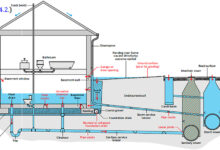System Engineer Jobs: 7 Powerful Paths to Skyrocket Your Career
If you’ve ever wondered what it takes to thrive in system engineer jobs, you’re in the right place. This guide breaks down everything from skills and salaries to real-world pathways that lead to success—all in plain, engaging English.
What Are System Engineer Jobs? A Clear Definition

System engineer jobs are at the heart of modern technology infrastructure. These roles involve designing, implementing, and maintaining complex systems that power everything from cloud platforms to enterprise networks. Unlike traditional IT roles, system engineers focus on the big picture—ensuring that hardware, software, networks, and security protocols work together seamlessly.
The Core Responsibilities of a System Engineer
System engineers are problem solvers and integrators. They don’t just fix issues—they anticipate them. Their responsibilities span across multiple domains, making them indispensable in tech-driven organizations.
- Designing scalable system architectures
- Integrating new technologies into existing infrastructures
- Monitoring system performance and troubleshooting issues
- Ensuring high availability, reliability, and security of systems
- Collaborating with development, operations, and security teams
“A system engineer is like an orchestra conductor—ensuring every component plays in harmony.” — TechOps Magazine, 2023
How System Engineer Jobs Differ from Other IT Roles
While system administrators maintain systems and developers write code, system engineers sit at the intersection. They bridge gaps between departments, ensuring that technical solutions align with business goals. For example, while a network engineer might optimize bandwidth, a system engineer evaluates how that network supports application delivery, data flow, and user experience across the entire ecosystem.
According to the U.S. Bureau of Labor Statistics, system engineers often have broader scopes than their IT counterparts, requiring both deep technical knowledge and strategic thinking.
Top 7 Industries Hiring System Engineers Right Now
System engineer jobs are not limited to tech companies. In fact, nearly every industry relies on robust IT systems, creating demand across sectors. Here are the top seven industries actively hiring system engineers today.
1. Information Technology & Software Development
Unsurprisingly, IT firms are the largest employers of system engineers. Companies like Microsoft, Amazon, and Google hire system engineers to manage their cloud infrastructures, internal tools, and global deployment pipelines.
- Focus on cloud platforms (AWS, Azure, GCP)
- DevOps integration and CI/CD pipeline management
- Automating system provisioning and monitoring
These roles often require expertise in scripting languages like Python or PowerShell and familiarity with containerization tools like Docker and Kubernetes.
2. Financial Services & Banking
Banks and financial institutions rely heavily on secure, high-performance systems. System engineer jobs in finance focus on transaction processing, fraud detection systems, and regulatory compliance.
- Maintaining low-latency trading platforms
- Securing sensitive customer data
- Ensuring 24/7 uptime for online banking services
A report by Gartner highlights that financial firms are increasing investments in hybrid cloud architectures, driving demand for skilled system engineers.
3. Healthcare & Medical Technology
Hospitals, clinics, and health tech startups need reliable systems to manage electronic health records (EHR), telemedicine platforms, and medical devices.
- Integrating EHR systems with diagnostic tools
- Ensuring HIPAA compliance and data privacy
- Supporting remote patient monitoring infrastructure
System engineers in healthcare must understand both IT systems and regulatory frameworks, making these roles highly specialized and well-compensated.
4. Telecommunications
With the rollout of 5G and expansion of fiber networks, telecom companies are hiring system engineers to design and maintain next-generation communication infrastructures.
- Managing network virtualization (NFV)
- Optimizing data center interconnects
- Supporting IoT device integration
Engineers in this field often work with vendors like Cisco, Nokia, and Ericsson, requiring knowledge of both hardware and software-defined networking (SDN).
5. Government & Defense
Federal agencies and defense contractors need secure, resilient systems. System engineer jobs here often require security clearances and involve classified projects.
- Designing secure communication networks
- Supporting national cybersecurity initiatives
- Integrating satellite and radar systems
Organizations like the Department of Defense and NASA frequently post system engineer roles on platforms like USAJobs.
6. Energy & Utilities
Smart grids, renewable energy systems, and industrial automation rely on robust IT infrastructure. System engineers help integrate SCADA systems, monitor power distribution, and ensure operational continuity.
- Securing industrial control systems (ICS)
- Monitoring real-time energy data flows
- Supporting grid resilience during outages
These roles often blend IT with operational technology (OT), requiring a unique skill set.
7. E-commerce & Retail
Online retailers like Amazon, Walmart, and Shopify depend on scalable, fault-tolerant systems to handle millions of transactions daily.
- Managing inventory and order processing systems
- Optimizing website performance during peak traffic
- Integrating payment gateways and fraud detection tools
System engineers in e-commerce must be adept at handling high-concurrency environments and rapid deployment cycles.
Essential Skills for System Engineer Jobs in 2024
To succeed in system engineer jobs, technical proficiency must be paired with soft skills and adaptability. The landscape is evolving rapidly, especially with the rise of AI, automation, and edge computing.
Technical Skills You Must Master
These are the hard skills that hiring managers look for when evaluating candidates for system engineer jobs.
- Operating Systems: Deep knowledge of Linux (Red Hat, Ubuntu) and Windows Server
- Networking: Understanding TCP/IP, DNS, firewalls, VLANs, and load balancing
- Cloud Platforms: AWS, Microsoft Azure, or Google Cloud Platform certifications are highly valued
- Scripting & Automation: Proficiency in Python, Bash, PowerShell, or Ansible
- Virtualization: Experience with VMware, Hyper-V, or KVM
- Monitoring Tools: Nagios, Zabbix, Prometheus, or Datadog
- Security Fundamentals: Knowledge of firewalls, intrusion detection, encryption, and zero-trust models
According to LinkedIn’s 2024 Jobs Report, cloud and automation skills are among the most in-demand for system engineer roles.
Soft Skills That Set You Apart
Technical skills get your foot in the door, but soft skills determine long-term success in system engineer jobs.
- Problem-Solving: Ability to diagnose complex system failures under pressure
- Communication: Explaining technical issues to non-technical stakeholders
- Team Collaboration: Working effectively with developers, security teams, and business units
- Time Management: Prioritizing tasks during system outages or upgrades
- Adaptability: Keeping up with fast-changing technologies and business needs
“The best system engineers aren’t just tech wizards—they’re translators between tech and business.” — CIO.com, 2023
Certifications That Boost Your Resume
Earning industry-recognized certifications can significantly improve your chances of landing high-paying system engineer jobs.
- CompTIA Server+: Entry-level certification covering server hardware and troubleshooting
- Microsoft Certified: Azure Administrator Associate: Validates cloud management skills
- AWS Certified SysOps Administrator: Focuses on deployment, management, and operations on AWS
- Red Hat Certified Engineer (RHCE): Highly respected for Linux system administration
- Certified Information Systems Security Professional (CISSP): Ideal for engineers focusing on security
- Google Professional Cloud Architect: For those working in GCP environments
Many employers view certifications as proof of commitment and expertise, especially when combined with hands-on experience.
How to Land System Engineer Jobs: A Step-by-Step Guide
Breaking into system engineer jobs requires more than just technical knowledge. You need a strategic approach to job hunting, networking, and personal branding.
Step 1: Build a Strong Foundation with Education
Most system engineer jobs require at least a bachelor’s degree in computer science, information technology, or a related field. However, some employers accept equivalent experience or bootcamp training.
- Focus on courses in networking, operating systems, and system architecture
- Consider pursuing a master’s degree for advanced roles or leadership positions
- Enroll in online programs from platforms like Coursera, edX, or Udacity
For example, the Google IT Support Professional Certificate is a great starting point for beginners.
Step 2: Gain Hands-On Experience
Practical experience is crucial. Employers want to see that you can apply your knowledge in real-world scenarios.
- Set up a home lab using old computers or virtual machines
- Practice deploying servers, configuring networks, and automating tasks
- Contribute to open-source projects on GitHub
- Volunteer to manage IT systems for small businesses or nonprofits
Many successful system engineers started by managing personal projects or internships before landing full-time roles.
Step 3: Optimize Your Resume for System Engineer Jobs
Your resume should highlight both technical skills and measurable achievements.
- Use action verbs: “Designed,” “Implemented,” “Optimized,” “Reduced downtime by X%”
- List relevant certifications and tools
- Tailor your resume for each job application using keywords from the job description
- Include a summary section that showcases your value proposition
For example: “Results-driven system engineer with 5+ years of experience in cloud infrastructure and automation, reducing system downtime by 40% at XYZ Corp.”
Step 4: Ace the Interview Process
System engineer job interviews often include technical assessments, behavioral questions, and scenario-based challenges.
- Prepare for questions like “How would you troubleshoot a server outage?”
- Practice whiteboard exercises on system design
- Be ready to explain past projects in detail
- Demonstrate your understanding of scalability, security, and reliability
Websites like HackerRank and Interview Cake offer practice problems tailored to system roles.
Step 5: Network Strategically
Many system engineer jobs are filled through referrals or professional networks.
- Join LinkedIn groups related to system engineering and DevOps
- Attend tech meetups, webinars, and conferences like AWS re:Invent or Microsoft Ignite
- Connect with professionals in your target companies
- Engage in discussions on Reddit (e.g., r/sysadmin, r/devops) or Stack Overflow
Building relationships can lead to job referrals, mentorship, and insider knowledge about hiring trends.
Salary Expectations for System Engineer Jobs in 2024
System engineer jobs are among the highest-paying roles in IT, with salaries varying by location, experience, and industry.
Entry-Level vs. Senior-Level Pay
Compensation grows significantly with experience and specialization.
- Entry-Level (0–2 years): $60,000 – $80,000 per year
- Mid-Level (3–5 years): $85,000 – $110,000 per year
- Senior-Level (6+ years): $115,000 – $150,000+ per year
Salaries in tech hubs like San Francisco, New York, or Seattle are typically 20–30% higher than the national average.
Industry-Specific Salary Trends
Certain industries offer higher compensation due to the complexity and critical nature of their systems.
- Finance: Average $130,000 due to high-stakes environments
- Tech (FAANG companies): $140,000+ with stock options and bonuses
- Government: $90,000–$120,000 with strong benefits and job security
- Healthcare: $100,000–$125,000 with growing demand
Data from Glassdoor shows that system engineers with cloud and security expertise earn up to 25% more than their peers.
Global Salary Comparison
System engineer jobs are in demand worldwide, but pay varies significantly by country.
- United States: $95,000 average
- Canada: CAD 85,000 (~$63,000 USD)
- United Kingdom: £55,000 (~$70,000 USD)
- Germany: €70,000 (~$75,000 USD)
- India: ₹1,200,000 (~$14,500 USD), but rising fast in tech hubs
Remote work has opened opportunities for engineers to work for international companies while living in lower-cost regions, increasing earning potential.
Future Trends Shaping System Engineer Jobs
The role of a system engineer is evolving rapidly due to technological advancements and changing business needs.
The Rise of Automation and AI
Automation is transforming system engineer jobs. Tasks like server provisioning, patching, and monitoring are increasingly handled by AI-driven tools.
- Tools like Ansible, Terraform, and Puppet reduce manual work
- AI-powered monitoring (e.g., AIOps) predicts outages before they happen
- Engineers are shifting from reactive to proactive roles
According to McKinsey, 60% of organizations are investing in AI for IT operations, reshaping the future of system engineering.
Cloud-Native and Hybrid Environments
More companies are adopting hybrid cloud models, combining on-premise systems with public cloud services.
- System engineers must manage multi-cloud environments
- Kubernetes and container orchestration are becoming essential skills
- Zero-trust security models are replacing traditional perimeter defenses
This shift requires engineers to think beyond single systems and focus on interoperability and resilience.
Increased Focus on Cybersecurity
With rising cyber threats, system engineers are expected to integrate security into every layer of the infrastructure.
- Implementing secure boot processes and endpoint protection
- Conducting regular vulnerability assessments
- Designing systems with least-privilege access models
The role is increasingly overlapping with cybersecurity engineering, creating hybrid roles like “Secure Systems Engineer.”
Common Challenges in System Engineer Jobs
While system engineer jobs are rewarding, they come with unique challenges that require resilience and adaptability.
Managing System Complexity
Modern IT environments are incredibly complex, with hundreds of interconnected services.
- Microservices architectures increase troubleshooting difficulty
- Legacy systems often coexist with modern platforms
- Configuration drift can lead to unexpected failures
Engineers must use documentation, monitoring, and automation to maintain control.
Dealing with High-Pressure Situations
System outages can cost companies thousands per minute, putting engineers under immense pressure.
- On-call rotations require 24/7 availability
- Incident response must be fast and accurate
- Post-mortem analysis is critical for preventing recurrence
Effective stress management and clear communication during crises are essential.
Keeping Up with Rapid Technological Change
The tech industry evolves quickly. What’s cutting-edge today may be obsolete in two years.
- New tools and frameworks emerge constantly
- Cloud providers update services monthly
- Security threats evolve daily
Lifelong learning is not optional—it’s a requirement for staying relevant in system engineer jobs.
FAQs About System Engineer Jobs
What education do I need for system engineer jobs?
A bachelor’s degree in computer science, IT, or a related field is typically required. However, certifications and hands-on experience can sometimes substitute for formal education, especially in tech-forward companies.
Are system engineer jobs in demand?
Yes, system engineer jobs are in high demand across industries. The U.S. Bureau of Labor Statistics projects a 5% growth in computer and IT occupations from 2021 to 2031, with system engineers being a key part of that expansion.
Is system engineering a good career?
Absolutely. System engineering offers competitive salaries, strong job security, and opportunities for advancement. It’s ideal for those who enjoy problem-solving, technology, and continuous learning.
How is system engineering different from DevOps?
While there’s overlap, system engineering is broader, focusing on end-to-end system design and reliability. DevOps is more focused on collaboration between development and operations, with an emphasis on CI/CD pipelines and automation. Many system engineers adopt DevOps practices, but not all DevOps engineers handle full system architecture.
Can I work remotely in system engineer jobs?
Yes, many system engineer jobs offer remote or hybrid options, especially in cloud-focused roles. However, some positions in healthcare, government, or industrial sectors may require on-site presence for security or operational reasons.
System engineer jobs are more than just technical roles—they are strategic positions that keep organizations running smoothly. From designing resilient infrastructures to leading digital transformation, system engineers are at the forefront of technological innovation. Whether you’re just starting out or looking to advance your career, the path is full of opportunities. With the right skills, mindset, and persistence, you can build a rewarding and impactful career in this dynamic field.
Further Reading:









